Why We Get Sleepy After Eating? The Foods that are to Blame

Do you feel really sleepy after eating? Typically, this is the result of eating certain foods.
If you have the opportunity, the best remedy to deal with sleepiness after eating is to take a quick nap for 10 to 15 minutes.
However, if this isn’t always possible, you can play with your diet. First of all, it’s always important not to eat or drink too much. In addition, try to avoid the foods we’re going to list in this article.
Avoid dairy products
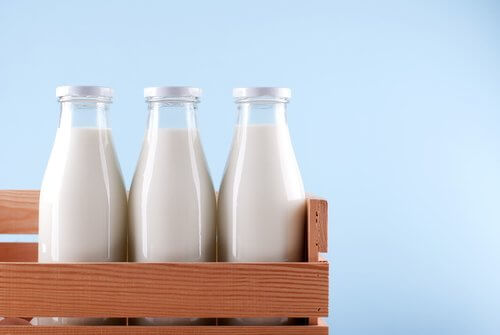
Dairy products are essential for caring for your bones, but it’s important to be careful about the way you ingest them and, above all, about the times you have them.
The combination of tryptophan and calcium that these products usually contain helps the brain to assimilate this amino acid. This relaxing effect is especially noticeable when we eat hard cheeses, because they contain more calcium.
If you add bread to the cheese, you’ll be even sleepier. In the presence of carbohydrates, the effect of tryptophan is stronger.
Overall, be very careful with dairy if you don’t want to be too sleepy afterwards.
See also:
Signs You May Be Lactose Intolerant and Don’t Even Know It
Moderate your consumption of almonds
Almonds are another food that is rich in tryptophan, the amino acid that favors the production of the sleep hormone melatonin.
Almonds also contain a lot of magnesium, which relaxes the muscles and makes you sleepy. If you need to work afterwards, it’s best to avoid eating them.
If you don’t want to feel sleepy, don’t eat bananas
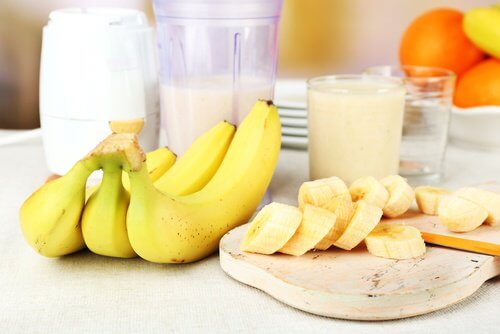
The sugar that bananas contain makes tryptophan much more accessible for the brain.
In addition, the quantities of potassium and magnesium that are found in abundance in this fruit. These minerals relax the muscles and make you feel sleepy.
Walnuts and sleepiness
Walnuts are another product that can cause sleepiness, although less so than other nuts like almonds.
This is because, although they contain less tryptophan than almonds, they actually directly contain melatonin.
Studies have shown that eating walnuts increases the levels of this hormone in the blood. As a result, you might get sleepy, so be careful about eating them at work.
If you don’t want to fall asleep, don’t eat cherries
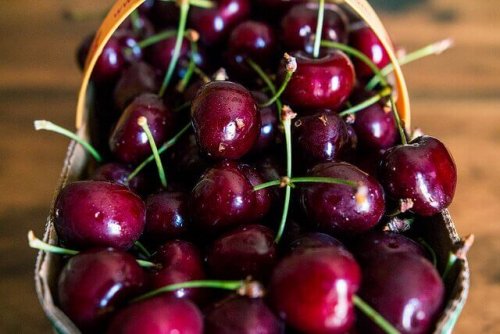
Cherries are a delicious fruit, but they can make you sleepy because they increase melatonin levels.
While a couple of cherries won’t change anything, be careful about drinking a glass of cherry juice. In this case, it’s likely that you will get sleepy.
The relaxing effect of chamomile
Chamomile contains glycine, an amino acid that has a gentle sedative effect and relaxes the muscles and nervous system.
As a result, you’ll probably get sleepy after drinking chamomile tea, so be careful about when you drink it.
Don’t overdo it with pumpkin seeds
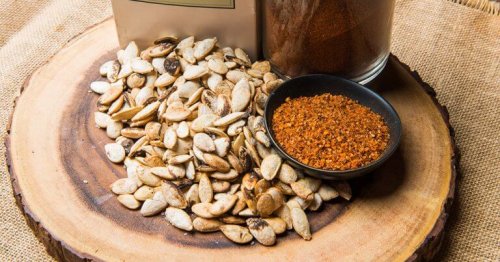
Pumpkin seeds also contain significant doses of tryptophan as well as a lot of zinc and magnesium.
These elements relax the muscles and nervous system. As a result, you may feel sleepy after eating them. Bear this in mind.
Oats for breakfast?
Oats offer both tryptophan and B group vitamins, so they relax your nervous system. They also contain magnesium and calcium.
If you don’t want to be yawning after breakfast, don’t intensify the sedative effect by mixing them with milk, bananas or almonds.
Rather, try to mix them with other kinds of foods.
Sleepiness after eating white rice
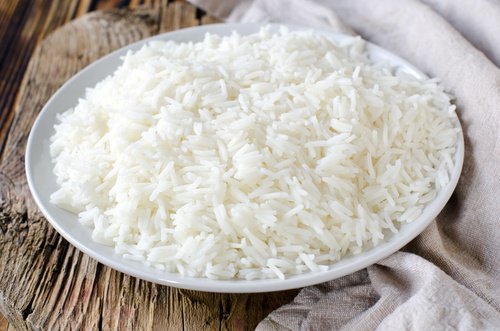
White rice has a high glycemic index, so it causes sleepiness. However, this is not immediate, but rather 3 or 4 hours later.
Jasmine rice has the most marked hypnotic effect, so be careful if you’re a fan of this type of rice.
We recommend you read:
Never Toss Your Rice Water Again
Fatty fish
The acids contained in the most fatty types of fish – like salmon, tuna and other fried fatty fish – intensify the production of melatonin.
The same acids reduce the levels of the stress hormone in the blood, so they relax you and you may begin to feel tiredness take over.
All cited sources were thoroughly reviewed by our team to ensure their quality, reliability, currency, and validity. The bibliography of this article was considered reliable and of academic or scientific accuracy.
- Barlow, David H., and V. Mark Durand. Psicología anormal: un enfoque integral. Internacional Thomson Editores,, 2001.
- Jiménez-Genchi, Alejandro, et al. “Actualidades en las aplicaciones clínicas de la melatonina en trastornos del sueño.” Revista Mexicana de Neurociencia 14.1 (2013): 39-43.
- Serfaty, M., A. Masautis, and V. Luis Foglia. “Epidemiología de trastornos del sueño.” Acta Psiquiat Psicol Am Lat 50.1 (2004): 59-66.
This text is provided for informational purposes only and does not replace consultation with a professional. If in doubt, consult your specialist.








